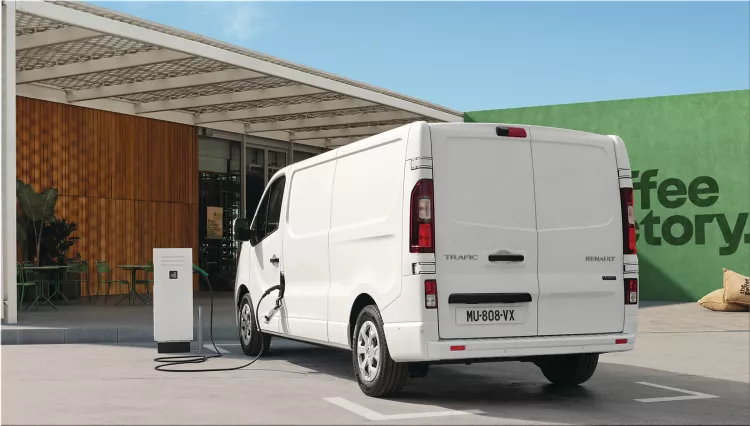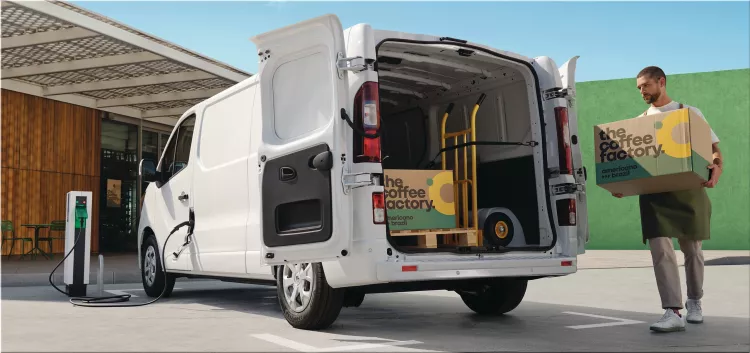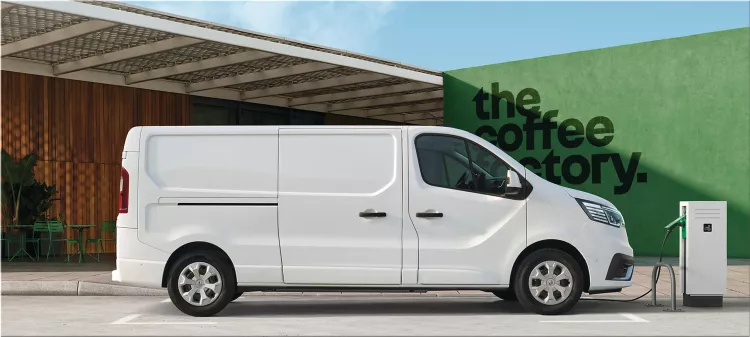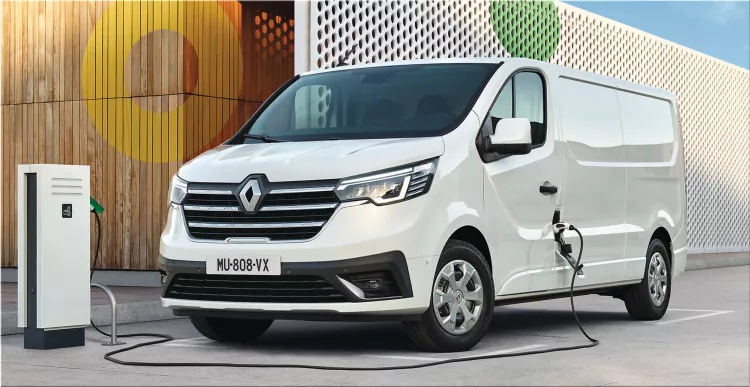Renault has been a pioneer in the field of electric vehicles, offering a range of models that cover various segments and needs. From the compact Renault Zoe to the large Renault Master, Renault has an electric solution for every customer. But there was one gap in its portfolio: the medium-sized van. That's where the Renault Trafic Van E-Tech electric comes in.
The Renault Trafic is a popular and versatile van that has been on the market since 1980. It has sold over 2.4 million units worldwide and ranks as the third-best-selling LCV (Light commercial vehicle) in Europe. It is available in different lengths, heights, and configurations, making it suitable for a wide range of professions and activities. Whether you need to transport goods, passengers, or tools, the Renault Trafic can handle it.
But what if you also want to reduce your environmental impact, save on fuel costs, and access low-emission zones without restrictions? That's where the Renault Trafic Van E-Tech electric comes in handy. This is the all-electric version of the Trafic, which joins the Renault Kangoo Van E-Tech electric and the Master E-Tech electric in Renault's electrified LCV line-up. With this addition, Renault now offers a complete range of zero-emission vehicles for urban and peri-urban use.
What's New?
The Renault Trafic Van E-Tech electric is based on the same platform and design as the regular Renault Trafic but with some key differences. The most obvious one is the absence of a combustion engine under the hood. Instead, there is a 90 kW (122 hp) electric motor that delivers 245 Nm of instant torque. This means that the Trafic Van E-Tech electric is smooth and responsive to drive, with no gear changes or vibrations.
The electric motor is powered by a 52 kWh lithium-ion battery pack that provides up to 297 km (185 miles) of range in the WLTP cycle. This is enough for most daily tasks and trips, especially in urban areas where traffic and speed limits reduce energy consumption. The battery pack also has an 8-year or 160,000 km (99,419 miles) warranty, which covers any degradation below 70% of its nominal capacity.
The battery can be charged using different methods, depending on the available time and infrastructure. The fastest way is to use a DC fast charger that can replenish the battery from 15% to 80% in just one hour. Alternatively, you can use an AC wallbox that can fully charge the battery in about six hours. Or you can simply plug it into a regular household socket, which will take about 12 hours for a full charge.
Another difference between the Renault Trafic Van E-Tech electric and its ICE counterpart is the instrument cluster and infotainment system. The former displays information such as speed, battery level, range, power consumption, and driving mode. The latter is a 7-inch touchscreen that supports Apple CarPlay and Android Auto, as well as navigation with real-time traffic and charging station information.
What's The Same?
Despite the electrification, the Renault Trafic Van E-Tech electric retains all the strengths and features that have made the Renault Trafic a successful model for over four decades. It still offers a spacious and practical interior, with plenty of storage compartments and a mobile office function. The latter consists of a foldable middle seat that turns into a desk or a table when needed.
The Renault Trafic Van E-Tech electric also preserves its versatility and modularity, with several options to choose from depending on your needs. You can opt for two lengths (5.08 m or 5.48 m), two heights (1.97 m or 2.50 m), and three body styles (panel van, double cab panel van, or flatbed). The panel van version has a load volume ranging from 5.8 to 8.9 cubic meters and a load length of up to 4.15 m (with an optional trap door in the partition). The payload capacity is up to 1.1 tonnes, and the towing capacity is up to 750 kg.
The Renault Trafic Van E-Tech electric also benefits from Renault's expertise and experience in electric vehicles, which translates into high-quality components, reliable performance, and low maintenance costs. Moreover, Renault offers personalized support and services for its electric customers, such as a preliminary study of needs and uses, advice on charging solutions, financing options, warranty extensions, roadside assistance, and more.
What's The Verdict?
The Renault Trafic Van E-Tech electric is a welcome addition to Renault's electric range, as it fills a gap in the medium-sized van segment that is increasingly in demand. It combines the advantages of electric mobility, such as zero emissions, low running costs, and smooth driving, with the strengths of the Trafic, such as spaciousness, versatility, and practicality. It is an ideal choice for professionals who want to reduce their environmental impact and optimize their efficiency without compromising on their comfort and convenience. The Renault Trafic Van E-Tech electric is expected to go on sale in late 2023, with prices and specifications to be announced closer to the launch date.
The Ford E-Transit is the electric version of the popular Ford Transit van, which is widely used for commercial purposes such as delivery, cargo, and passenger transport. The E-Transit is… Continue reading
Nissan is introducing a new light commercial vehicle to the market: the Nissan Townstar. The Japanese claim that this will be the brand's most sophisticated model to date. The available electric model is based on the e-NV200 electric… Continue reading
Stellantis, the world’s fourth-largest automaker, has announced that it will start producing electric vans at its Luton plant in the UK from 2025. The move is part of the company’s strategy to expand its presence in the UK market and to meet the… Continue reading
The Opel Vivaro-e is the fully electric variant of the light commercial van from Opel. It will hit the market next year. As part of its PACE! Strategic plan, Opel will develop eight electrified cars by 2021. At the same time, among those eight electric… Continue reading












